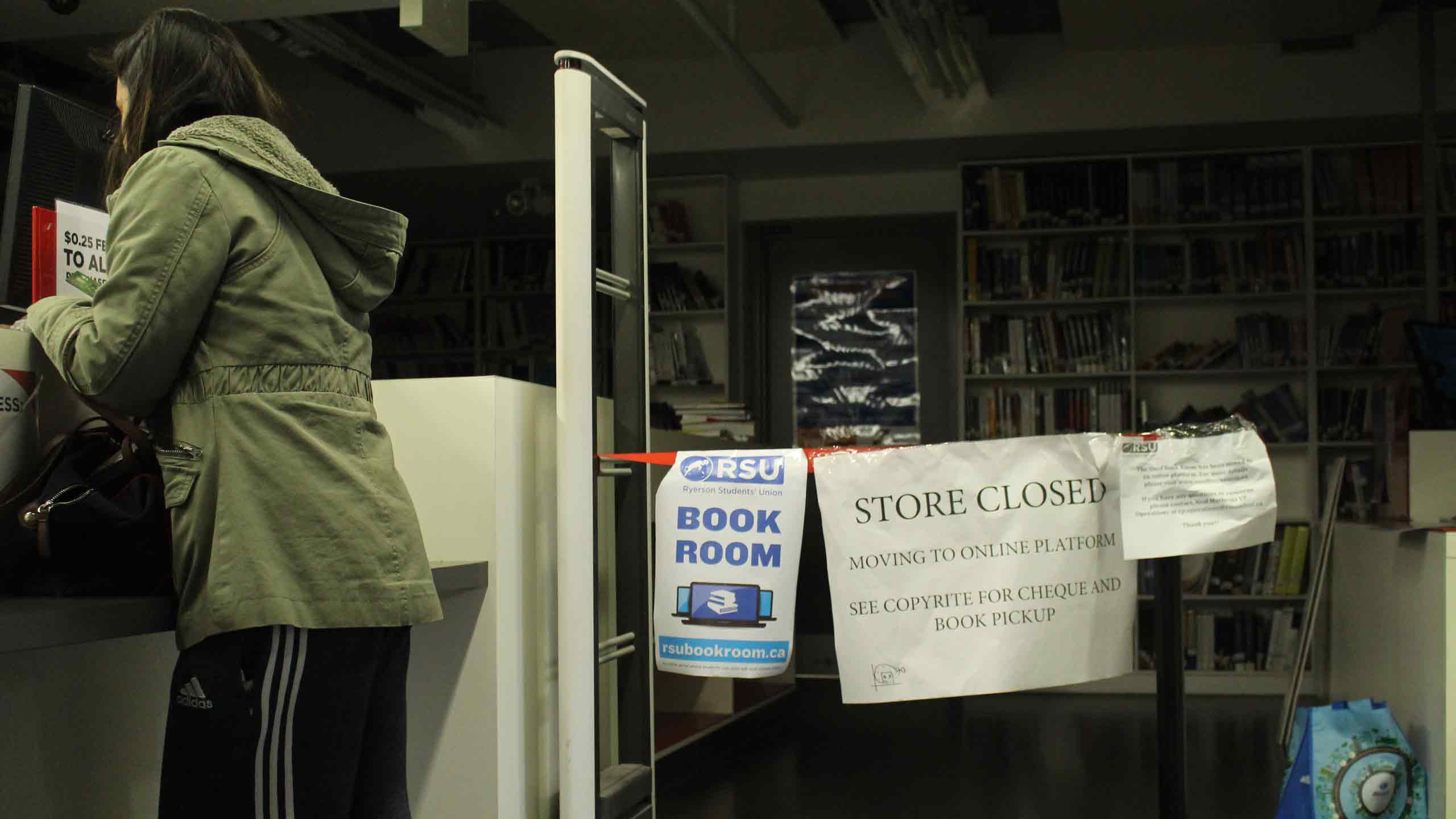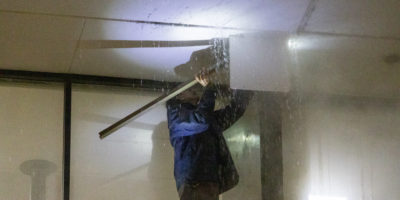By Alexia DelPriore
The Ryerson Students’ Union (RSU) executives promised students increased mental health initiatives when they ran on the Impact slate last school year. But with the delayed opening of the Wellness Centre, some students say this promise isn’t being kept.
The new Wellness Centre—implemented by the RSU—was created in the summer to provide extra direction for students to access mental health resources. RSU President Obaid Ullah calls it a “resource centre.”
However, opening date for the centre has been pushed back. The RSU planned to open it in September, but Ullah said construction hasn’t started.
He said the delay is a result of students not picking up their books from the Used Book Room, which previously occupied the space and has since moved online.
“We (the RSU) can take the books out ourselves, it’s just where are we going to put them? We don’t have a place for them. And if I get rid of the books, what happens if a student comes to me tomorrow and says, ‘What did you do with my book?’”
Ullah could not confirm an exact date of the opening of the centre, but said he hopes it will be ready in January. The approved budget for the Wellness Centre is $40,000. Some students feel that more money could be put towards the centre and other mental health initiatives— especially considering the budget for 6 Fest was about $1.5 million.
“It’s extremely frustrating, as I feel like Ryerson focuses on so many other things, such as putting on events and stuff, but when it comes to things like the mental well-being of their students, it’s just not taken seriously enough,” said Marissa Lentz, a second-year journalism student.
Ullah said the RSU budgeted a certain amount of money specifically for mental health initiatives, while money for 6 Fest was raised primarily for the concert.
Some students think the university itself—in addition to the RSU—is also lacking when it comes to providing adequate mental health services.
Ryerson’s counselling centre has seen a 50 per cent increase in the number of students requesting sessions this year, according to Sarah Thompson, clinical coordinator of the Centre for Student Development and Counselling (CSDC).
In May, it was announced that the Ryerson’s mental health budget would increase by $321,000, reaching a total of $1,715,000. Two additional full-time counsellors were hired. There are now a total of 17 counsellors for about 34,200 undergraduate and graduate students.
Lentz said she felt like her mental health wasn’t taken seriously when she used the CDSC services last year.
“I had to wait two weeks for just my initial appointment, and then I was waitlisted for four months only to have them cancel on me two days before,” she said
CDSC recently launched a pilot program in September to combat long wait times.
The program begins with a same-day private counselling sessions that take place from Monday to Friday from 10 a.m. to 2 p.m. Wait times will be about 24 hours. The second part of the program emphasizes group therapy sessions.
Lentz says that while the pilot program is a great initiative, she can’t see the 24-hour wait time being carried out into the rest of the school year because there is an increase in counselling demands.
Dr. Arshya Vahabzadeh, a part-time instructor in psychiatry at Harvard Medical School, said that group therapy isn’t right for everyone.
“People should be able to tolerate group therapy, and this is not always the case with individuals who have evident anxiety symptoms,” he said.
Vahabzadeh said that for the program to be emphasizing group therapy could mean there is a lack of resources for more private counselling. “Unfortunately, private therapy is more resource-intensive; a lot of it comes down to the availability of services and the duration they are required.”
Many universities lack these types of resources, according to Vahabzadeh.
York University has 16 counsellors along with 15 interns for about 53,000 students. Similar to Ryerson, they also offer group therapy and drop-in support workshops.
Grace Liritzis, a first-year social work student, visited the CDSC in early September and says her experience wasn’t what she expected. She was given some options for outside resources she could access, but had to do that on her own time.
“I explained what I needed and felt that it wasn’t given to me, they basically just push you in a direction they see fit,” Liritzis says.
She added that she prefers private over group therapy, despite the program’s push for group sessions. The CSDC does offer private sessions for students who need one-on-one therapy.
“For me, I have more serious issues to work through and need that one-on-one counselling experience.”
Liritz said that she was expecting to receive help from CDSC, but she was disappointed to be told that she couldn’t have the support and services that Ryerson promotes.
“From my experience I definitely think [Ryerson] is a lot of talk but not enough action.”












Leave a Reply